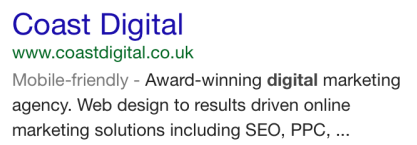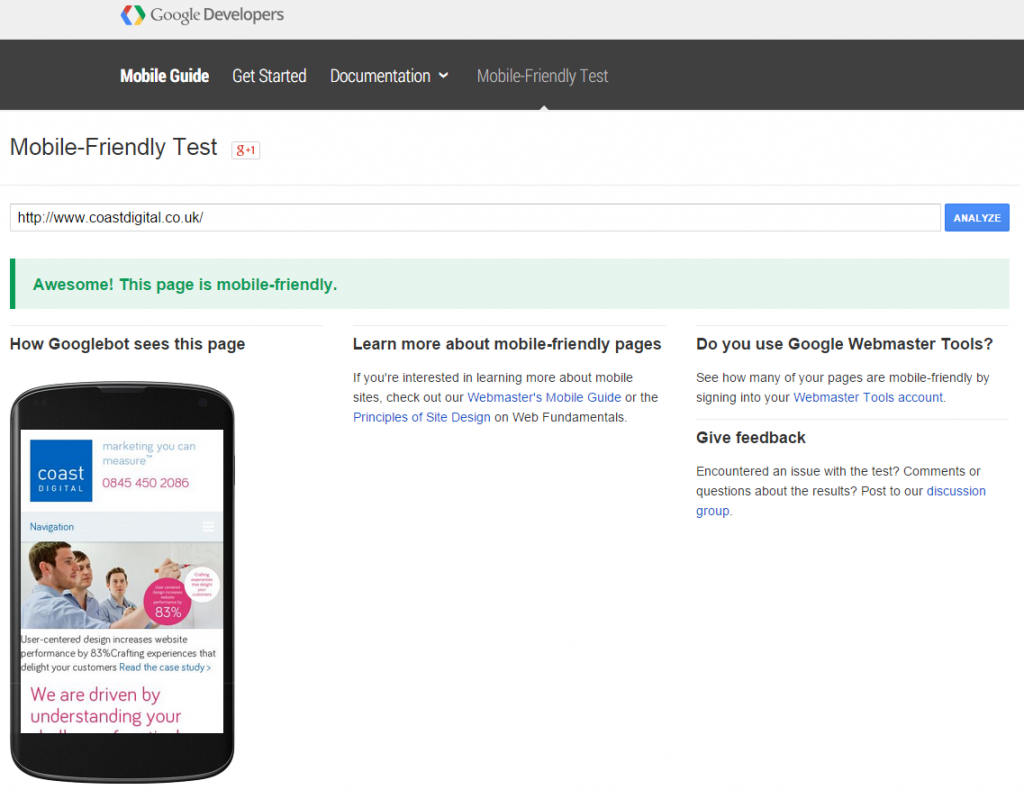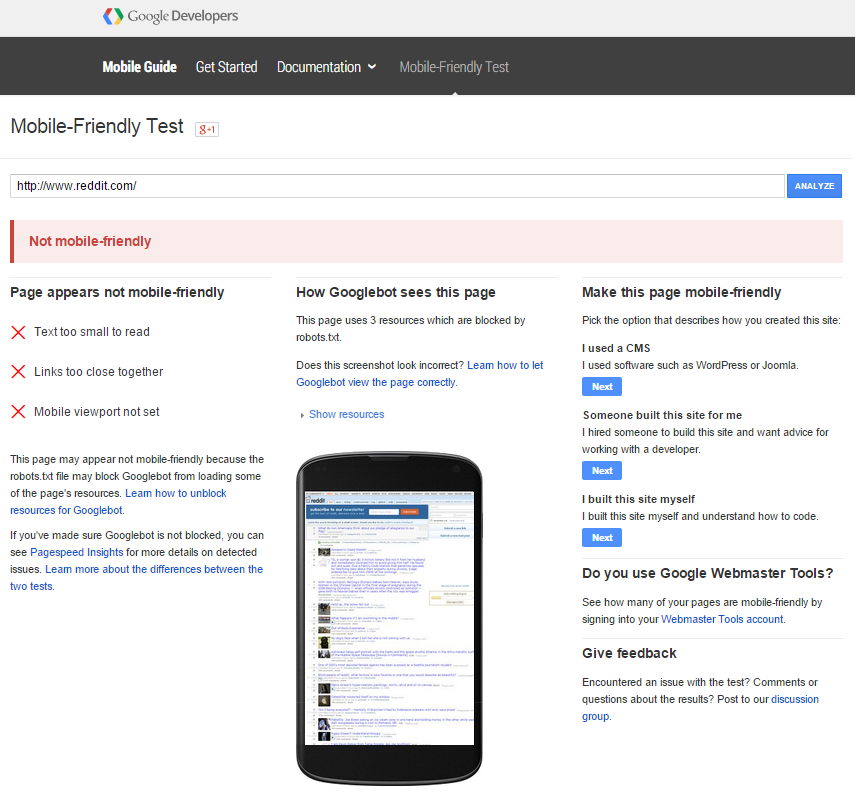In February we officially learned that Google was going to push out a new algorithm designed to reward mobile-friendly web pages.
This mobile-friendly update was tipped to be bigger than the Panda and Penguin Google algorithm updates that have hit online marketing within recent years – during the resulting panic the update got dubbed Mobilegeddon.
In the midst of this panic, Google reported that in the lead up to the launch of the mobile update that they saw an increase of mobile-friendly websites in their index of 4.7%.
In the run up to the update we also started to see the ‘Mobile-friendly’ label appear within the search listings on mobile devices – this came into play back in November 2014.

It’s fair to say that we had all pre-empted the new algorithmic update, but were we ready?
Post ’Mobilegeddon’
It has been two weeks now since the mobile update was released and marketers are starting to see a shift in the search results.
Some reports were being released as soon as the day after the algorithm was released. Search Metrics published a Winners & Losers post which showed us that Reddit.com was one of the biggest losers after the update (as you can see from the screenshot below, browsing this website is not the most pleasing experience on a mobile device).

If #Mobilegeddon hadn’t been pre-announced by Google, doubt anyone would have noticed: http://t.co/aqPJEj7h21 pic.twitter.com/djRDbOPHza
— Rand Fishkin (@randfish) April 28, 2015
@randfish Can we stop calling it Mobilegeddon then? Mobilemolehill? — Leon Mallett (@itsofficialleon) April 28, 2015
I’m so tired of the name #mobilegeddon How ridiculous? As if we didn’t know for YEARS mobile is important. @randfish
— Kyle Marvin (@kylemarvin) April 29, 2015
So far this Google #Mobilegeddon algorithm update has been like the Mayweather v Paq fight. All hype and no punches. — Luke Schnell (@vtluke) May 5, 2015
However, others said that they started to see a difference as early as one day after the update.
#Mobilegeddon spot the difference a day makes in mobile. Starting to see early flux with mobile friendly vs non pic.twitter.com/OTSPCaejRB
— jon earnshaw (@jonearnshaw) April 22, 2015
@jonearnshaw that’s quite a shakeout already! #Mobilegeddon — Tim Vogel (@timvogel87) April 22, 2015
Mobile-friendly retailers have seen an 8% uplift in traffic on average, since #Mobilegeddon – Find out more now: http://t.co/pCaXDBzJ6s
— Ryan Hirst (@RyanWHirst) May 1, 2015
I also took a poll last week that was hosted on SEO Round Table and the results showed that a massive chunk, 63.79%, of marketers did not see any change… yet.

Why haven’t we seen a big change?
The marketing industry was expecting to see a massive shake up within SERPs following the mobile-friendly Google update. However, we didn’t see this drastic change because many marketers were already prepared for the update.
Mashable said that 2013 was ‘A Responsive Year’ and even sparked a discussion about a possible ‘Post-PC era’. Coupled with the obvious trend emerging of more mobile users browsing the web, many brands and agencies behind the top positions within Google’s SERP would have thought about a mobile strategy a long time ago. Mobile marketing is not a new concept, responsive web design has been talked about for years – as early as 2011 in fact!
However, it is also important to note that it has only been just over a week since the update was released, and therefore there is still time for the update to have an effect on search listings.
Why are businesses scared about the update?
Google updates occur for the greater good of the search user. Google will always try and improve their service for their customers and will always aim to present users with the most relevant and useful webpage in relation to their search query, and in most recent years, the most user friendly.
In January 2014 we reached a benchmark where mobile users were spending more time on the internet per session than desktop users , and a comScore report states that desktop traffic now only accounts for 40% of all online web traffic. On top of that, Google say that 48% of internet users start their user journey by searching.
So, as a marketer or a business you should be jumping at the opportunity to cater to this ever increasing market, right? And this update is only going to push companies that aren’t already catering for this market to do so, which will in the long term increase potential customers and conversions!
Is my business safe?
The fastest way to check if your website is ready for the mobile web is to use Google’s very own Mobile-Friendly Test where it will analyse your website to see if it’s fit for mobile use.


If you do not have this label, then Google makes it super easy for you to update your website to make it mobile-friendly and has lots of guides and ‘how-to’s on how you can do just that here: https://developers.google.com/webmasters/mobile-sites/website-software.
There are still mixed views on the mobile update and whether or not it has shifted the landscape of search engine SERPs, however we are already starting to see fluxes in the results which suggest that the update is working and is having an effect.
We shouldn’t be scared of the update – it’s a push in the right direction for all businesses to cater to the ever increasing market segment of mobile users, because if you don’t then your competitors will!
